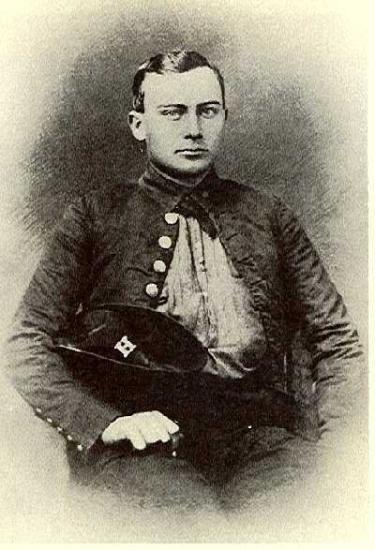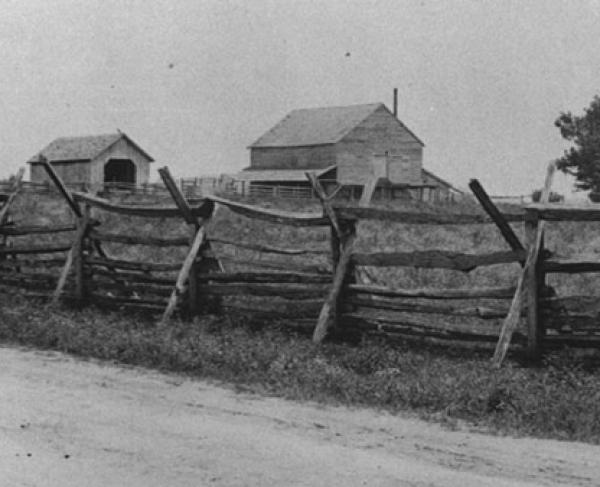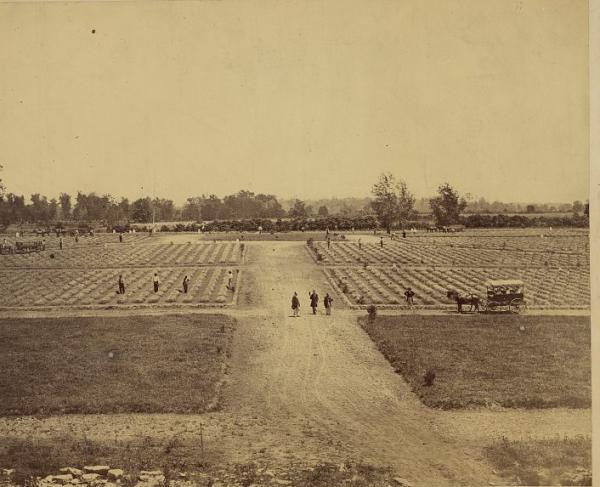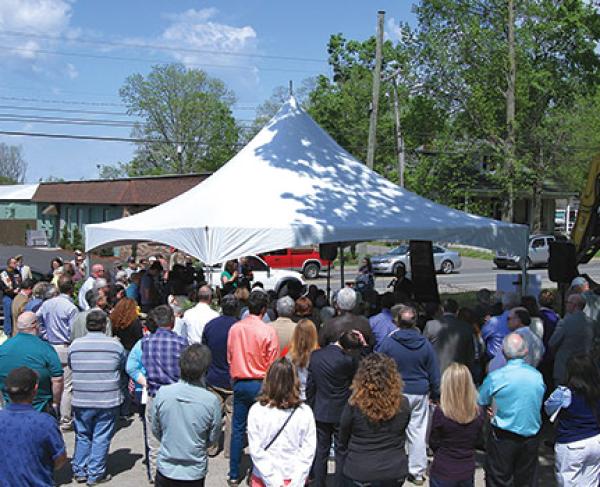The Death Angel Gathers Its Last Harvest


Kind reader, right here my pen, and courage, and ability fail me. I shrink from butchery. Would to God I could tear the page from these memoirs and from my own memory. It is the blackest page in the history of the war of the Lost Cause. It was the bloodiest battle of modern times in any war. It was the finishing stroke to the independence of the Southern Confederacy. I was there. I saw it. My flesh trembles, and creeps, and crawls when I think of it today. My heart almost ceases to beat at the horrid recollection. Would to God that I had never witnessed such a scene!
I cannot describe it. It beggars description. I will not attempt to describe it. I could not. The death-angel was there to gather its last harvest. It was the grand coronation of death. Would that I could turn the page. But I feel, though I did so, that page would still be there, teeming with its scenes of horror and blood. I can only tell of what I saw.
Our regiment was resting in the gap of a range of hills in plain view of the city of Franklin. We could see the battle-flags of the enemy waving in the breeze. Our army had been depleted of its strength by a forced march from Spring Hill, and stragglers lined the road. Our artillery had not yet come up, and could not be brought into action. Our cavalry was across Harpeth river, and our army was but in poor condition to make an assault. While resting on this hillside, I saw a courier dash up to our commanding general, B. F. Cheatham, and the word, "Attention!" was given. I knew then that we would soon be in action. Forward, march. We passed over the hill and through a little skirt of woods.
The enemy were fortified right across the Franklin pike, in the suburbs of the town. Right here in these woods a detail of skirmishers was called for. Our regiment was detailed. We deployed as skirmishers, firing as we advanced on the left of the turnpike road. If I had not been a skirmisher on that day, I would not have been writing this today, in the year of our Lord 1882.
It was four o'clock on that dark and dismal December day when the line of battle was formed, and those devoted heroes were ordered forward, to
"Strike for their altars and their fires,
For the green graves of their sires,
For God and their native land."
As they marched on down through an open field toward the rampart of blood and death, the Federal batteries began to open and mow down and gather into the garner of death, as brave, and good, and pure spirits as the world ever saw. The twilight of evening had begun to gather as a precursor of the coming blackness of midnight darkness that was to envelop a scene so sickening and horrible that it is impossible for me to describe it. "Forward, men," is repeated all along the line. A sheet of fire was poured into our very faces, and for a moment we halted as if in despair, as the terrible avalanche of shot and shell laid low those brave and gallant heroes, whose bleeding wounds attested that the struggle would be desperate.

Forward, men! The air loaded with death-dealing missiles. Never on this earth did men fight against such terrible odds. It seemed that the very elements of heaven and earth were in one mighty uproar. Forward, men! And the blood spurts in a perfect jet from the dead and wounded. The earth is red with blood. It runs in streams, making little rivulets as it flows. Occasionally there was a little lull in the storm of battle, as the men were loading their guns, and for a few moments it seemed as if night tried to cover the scene with her mantle. The death-angel shrieks and laughs and old Father Time is busy with his sickle, as he gathers in the last harvest of death, crying, More, more, more! while his rapacious maw is glutted with the slain.
But the skirmish line being deployed out, extending a little wider than the battle did—passing through a thicket of small locusts, where Brown, orderly sergeant of Company B, was killed—we advanced on toward the breastworks, on and on. I had made up my mind to die—felt glorious. We pressed forward until I heard the terrific roar of battle open on our right. Cleburne's division was charging their works. I passed on until I got to their works, and got over on their (the Yankees') side. But in fifty yards of where I was the scene was lit up by fires that seemed like hell itself. It appeared to be but one line of streaming fire.
Our troops were upon one side of the breastworks, and the Federals on the other. I ran up on the line of works, where our men were engaged. Dead soldiers filled the entrenchments. The firing was kept up until after midnight, and gradually died out. We passed the night where we were. But when the morrow's sun began to light up the eastern sky with its rosy hues, and we looked over the battlefield, O, my God! what did we see! It was a grand holocaust of death. Death had held high carnival there that night.
The dead were piled the one on the other all over the ground. I never was so horrified and appalled in my life. Horses, like men, had died game on the gory breastworks. General Adams' horse had his fore feet on one side of the works and his hind feet on the other, dead. The general seems to have been caught so that he was held to the horse's back, sitting almost as if living, riddled, and mangled, and torn with balls. General Cleburne's mare had her fore feet on top of the works, dead in that position. General Cleburne's body was pierced with forty-nine bullets, through and through. General Strahl's horse lay by the roadside and the general by his side, both dead, and all his staff. General Gist, a noble and brave cavalier from South Carolina, was lying with his sword reaching across the breastworks still grasped in his hand. He was lying there dead. All dead!
They sleep in the graveyard yonder at Ashwood, almost in sight of my home, where I am writing today. They sleep the sleep of the brave. We love and cherish their memory. They sleep beneath the ivy-mantled walls of St. John's church, where they expressed a wish to be buried. The private soldier sleeps where he fell, piled in one mighty heap. Four thousand five hundred privates! all lying side by side in death! Thirteen generals were killed and wounded. Four thousand five hundred men slain, all piled and heaped together at one place. I cannot tell the number of others killed and wounded. God alone knows that. We'll all find out on the morning of the final resurrection.

Kind friends, I have attempted in my poor and feeble way to tell you of this (I can hardly call it) battle. It should be called by some other name. But, like all other battles, it, too, has gone into history. I leave it with you. I do not know who was to blame. It lives in the memory of the poor old Rebel soldier who went through that trying and terrible ordeal.
We shed a tear for the dead. They are buried and forgotten. We meet no more on earth. But up yonder, beyond the sunset and the night, away beyond the clouds and tempest, away beyond the stars that ever twinkle and shine in the blue vault above us, away yonder by the great white throne, and by the river of life, where the Almighty and Eternal God sits, surrounded by the angels and archangels and the redeemed of earth, we will meet again and see those noble and brave spirits who gave up their lives for their country's cause that night at Franklin, Tennessee.
A life given for one's country is never lost. It blooms again beyond the grave in a land of beauty and of love. Hanging around the throne of sapphire and gold, a rich garland awaits the coming of him who died for his country, and when the horologe of time has struck its last note upon his dying brow, Justice hands the record of life to Mercy, and Mercy pleads with Jesus, and God, for his sake, receives him in his eternal home beyond the skies at last and forever.


